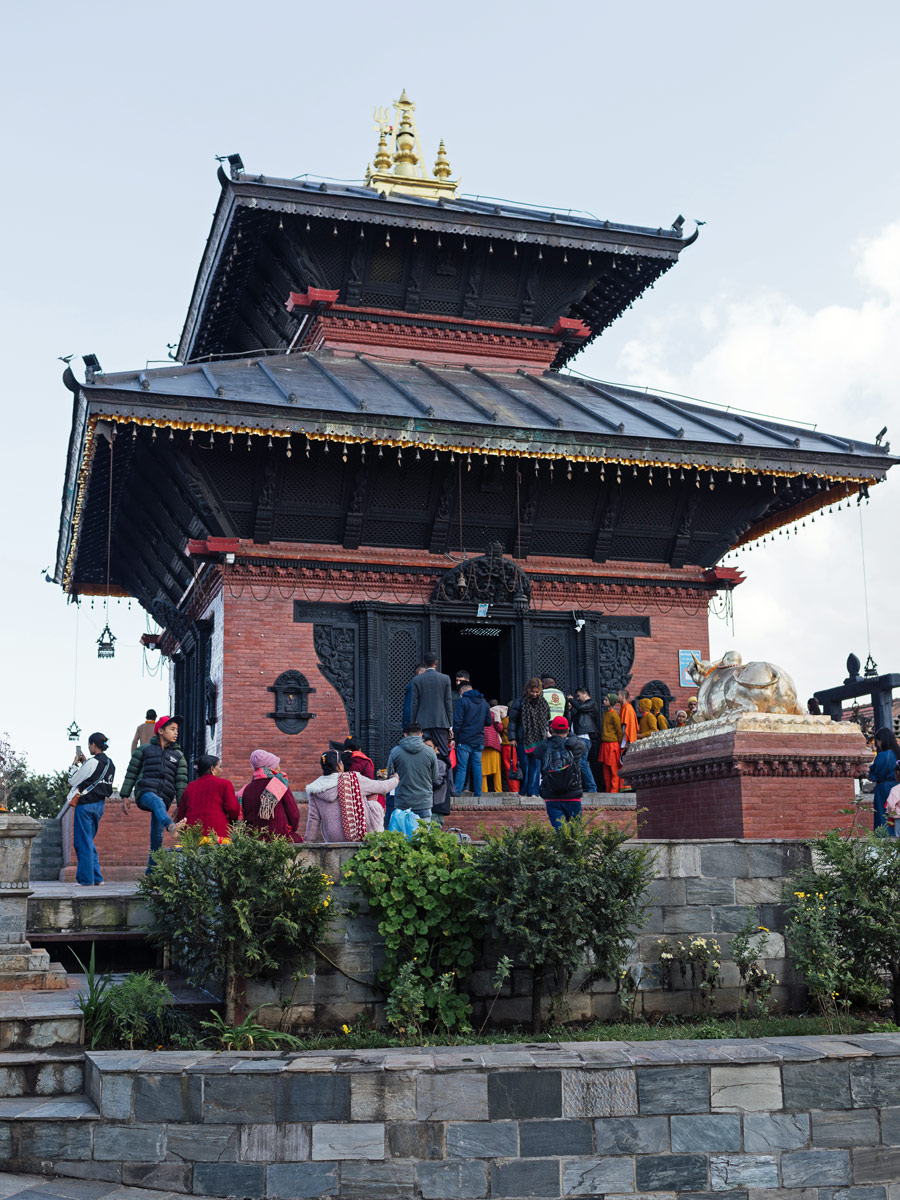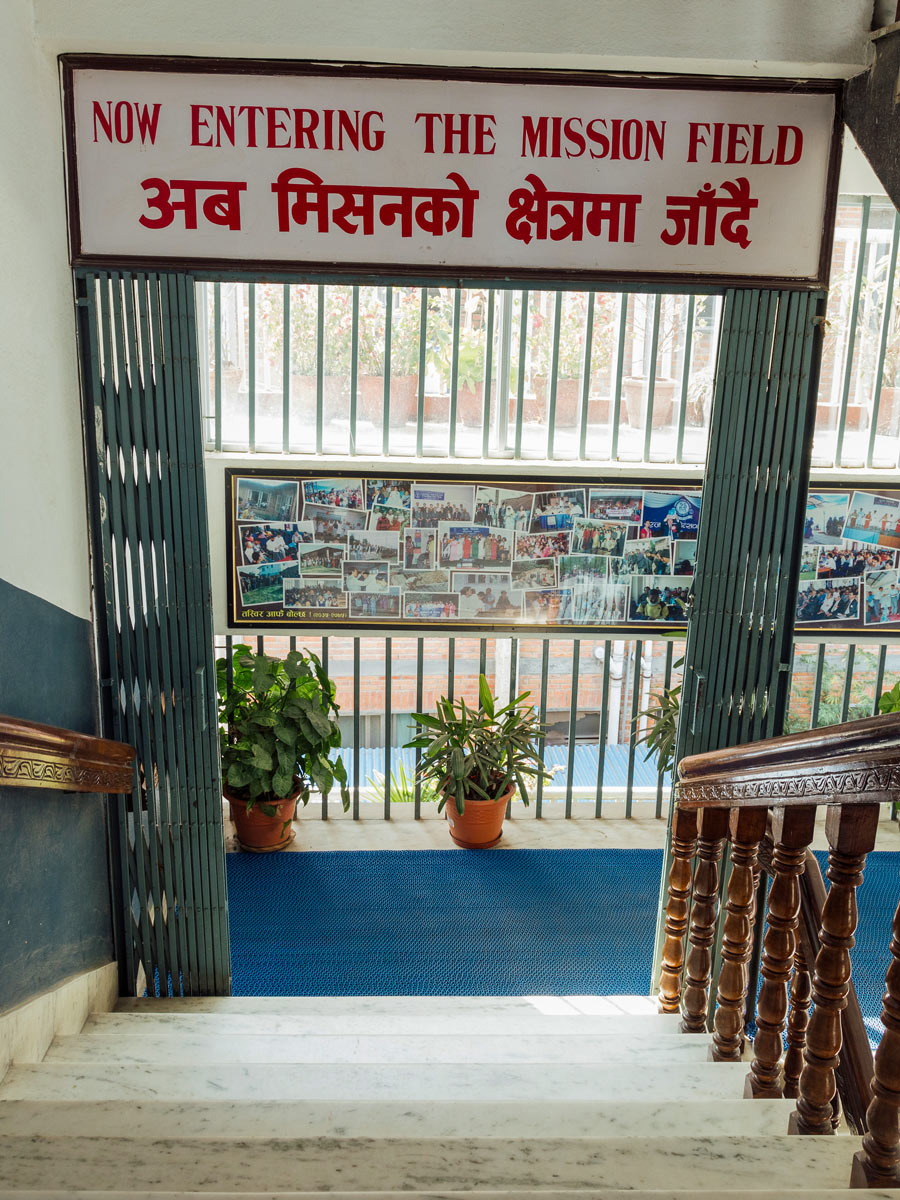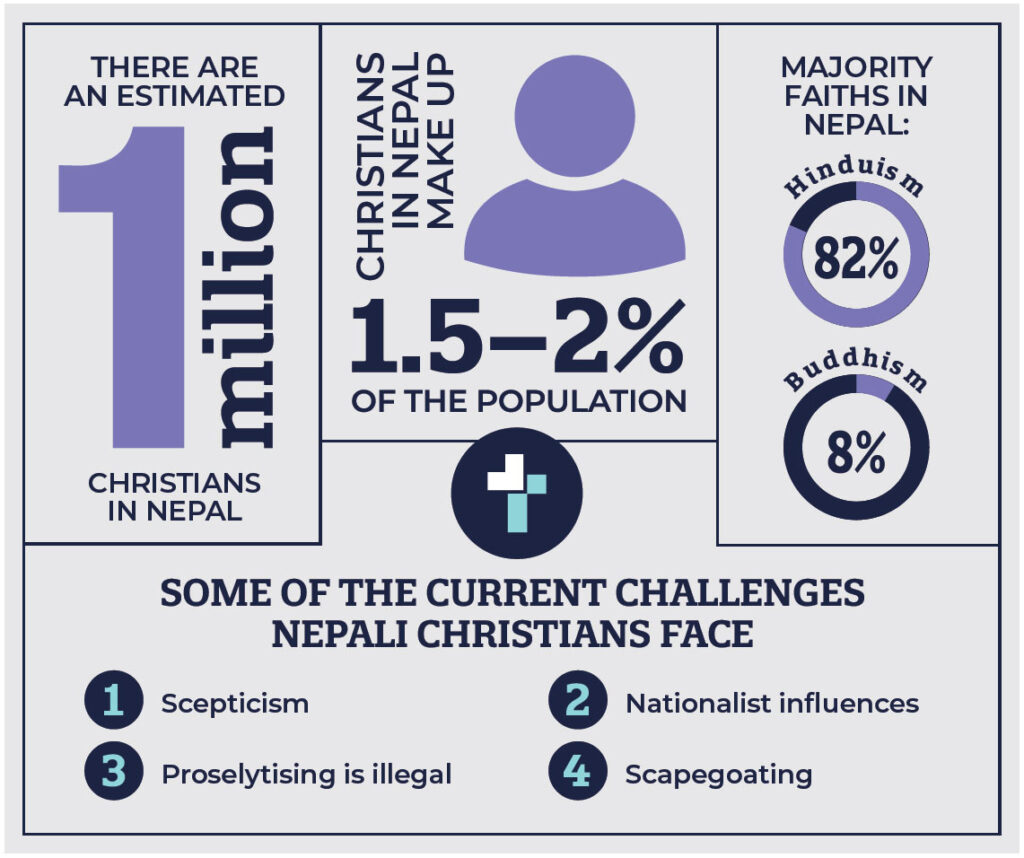Nepal: a complicated time for Christians
On a visit to Nepal, Naomi Rose Steinberg discovers why supporting discipleship training is critical right now
Following a few decades of relative freedom to share the gospel, Nepali Christians are sensing a net tightening around their liberty. Yet, though they increasingly feel their outsider status, they aren’t giving up, as Naomi Rose Steinberg discovered on a recent trip to the country known as the Land of Truth.
Arriving in Kathmandu, I was surprised to learn that the time difference between Nepal and the UK is five hours and 45 minutes. Depending on who you ask, there are differing reasons for this unusual variation from the standard increments: some political, some geographical, some cultural. A typical response to the question is: “It’s complicated.”
Nepal in many ways is a complex country, facing multiple challenges: economic struggles, political precariousness and a geographically landlocked position between the influences of India and China. All of these and other factors have recently contributed to making it an increasingly tricky place to be a Christian.
Christianity in Nepal
The rapid growth of Christianity in Nepal in the decades since the country became a democracy in 1951 has been phenomenal, particularly since the 1990s. In proportion to population, it remains one of the fastest growing churches in the world. I’m told that in Kathmandu, you can’t walk more than two or three streets without being near a church, many of these being house churches or groups that meet in multi-use buildings.
“I heard stories of funerals being held by families when a relative turned to Jesus.”
However, there is a growing uneasiness among Nepali Christians, as anti-conversion laws become more stridently enforced due to pressure from other religious groups.
Nepal is officially a secular country, but many Christians told me that, as a minority religion (less than 2 per cent of the population) followers of Jesus are increasingly and often arbitrarily discriminated against. This is making them more wary of overtly sharing the gospel.
On the outside
The Christians I talked to described how they have been made to feel like outsiders in various ways. This included family opposition, with one man telling me how he’d been thrown out of his house and made to sleep in a field, and a young woman relaying how her mother used to beat her for her faith. I heard stories of funerals being held by families when a relative turned to Jesus.
There is also cultural and societal pressure; Christians are often viewed with scepticism and suspicion. There is a perception that Christians have abandoned their culture for something Western-influenced, even though the church in Nepal is led mostly by indigenous people.


Nepali Christians are sometimes accused of being in cahoots with Western Christians for monetary gain. One local partner told me that this perception grew after the catastrophic earthquake in 2015: “Many well-meaning Christian organisations came to help, but there were reports of Bibles being put in sacks of rice that were given to suffering people and this was viewed as coercive.”
The same partner shared that Christians are being scapegoated for economic and social ills that Nepal is facing. This is partly due to the influence of Hindu nationalism, which has been on the rise in neighbouring India with reports of ensuing violence against Christians.
Growing hostility
Some of the Christians I met have contended with threats of violence from their communities. One rural pastor told me he came out of leading a church service to find 300 people waiting for him, angry and shouting. “They threatened to beat me and smear me with ink,” he recalled.
Smearing ink on someone is a sign of abject shame. The pastor was taken into police custody but later released. When I asked him if this kind of intense opposition makes him think about giving up being a pastor or following Jesus, he said, “The Bible tells if you want to be a disciple you have to pay a price, there is cost involved. Maybe I am just paying the price of being a disciple of Jesus.”
Counting the cost
In the face of growing opposition, Nepali Christians are demonstrating patience, resilience and adaptability.
Some tell me that while they can no longer safely go door-to-door, hold evangelistic events or hand out Christian literature, they are discovering the importance of building relationships and being good living witnesses for Jesus.

They point out that others can see the love they show for people, how Christianity breaks down barriers of gender and caste, and how Christians treat people with dignity. And this is still drawing people to Christ; the church is still growing, though perhaps not as quickly as before.
CMS, alongside Asia-CMS, has long been committed to helping people in Asia deepen and strengthen their faith so they can withstand storms of antagonism and keep sharing the gospel from the margins.
The pastor who had been threatened credited his ability to withstand pressure in part to training he’d received from a CMS partner. In recent years, deep discipleship has become an even greater priority.
Given the increasing opposition Christians are facing in Nepal, and having seen firsthand the difference this commitment to discipleship has made in people’s lives, it seems that maximising these efforts couldn’t come at a better time.